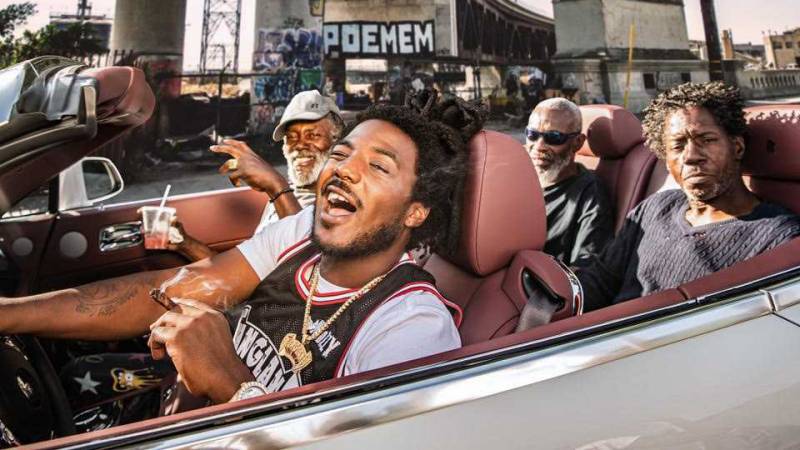Mozzy’s New Album Processes Trauma, Incarceration by Documenting His Healing
Mozzy #Mozzy


Mozzy released his new album ‘Beyond Bulletproof,’ a project he calls a “self-help book for the trenches,” on the prison communication service JPay before it came out on major platforms. He describes it as an homage to his supporters on the inside as well as a way to process his own struggles. (Mozzy)
Mozzy has carried his community with him throughout his career. So for the release of his new album Beyond Bulletproof—which dropped May 1 on EMPIRE—the beloved Sacramento rapper opted against streaming giants Spotify and Apple Music to host the record’s debut. Instead, he premiered it on JPay—an electronic communications service for incarcerated people.
“I got a lot of people in there, man, a lot of people counting on me,” says Mozzy, whose real name is Timothy Patterson. “A lot of people that shared this dream with me… and I feel like they’re supposed to be right here. We supposed to be sharing this experience.”
Beyond Bulletproof is a “self-help book for the trenches,” Mozzy says. The street raps and unglamourous portrayals of gang life, gun violence and the pain remain, but with a concerted effort to share wisdom earned through self-reflection.
There’s a lightness to the record, too—the lilting flute on “So Lonely,” the gentle guitar opening on “Bulletproofly” and the muted sample of Mario’s ’90s R&B classic “Let Me Love You” on “Big Homie from the Hood.” The singers Mozzy employs throughout the record—Shordie Shordie, Blxst and Eric Bellinger—soften the edges of Mozzy’s trademark gruff voice.
With nods to his incarcerated loved ones and his own time in jail woven throughout the record, Mozzy manages to share his dream with those behind bars. Throughout the album, he recalls not having enough to buy food in jail, a backwards legal system and his grief for loved ones with no release date in sight.
For Mozzy, Beyond Bulletproof is a way to pay it forward, too.
The album is dedicated to his grandmother, Brenda P. Usher, who passed in 2019. Patterson, a social worker and Black Panther Party member, adopted Mozzy when he was two years old. When he was younger, Mozzy said his grandmother would often urge him to fold substance into his music, and “give the people something that they can carry with them for a lifetime.”
Now, thanks to time, experience and learning to work through grief, that Mozzy feels he has made good on his grandmother’s wish. He pulled the curtain back on this process in the lead up to the release of Beyond Bulletproof with “Untreated Trauma,” a video series of therapy sessions.
Over the course of six episodes (only the first two are live now), Mozzy and his therapist Dr. Millie Rose talk about the recent death of his grandmother, his struggle to gain custody of his eldest daughter, depression and anxiety.
The therapy sessions, Mozzy says, were beautiful. But it was music that played the most instrumental part in healing from his grief.
He’s not alone. Even before the pandemic hit and isolation was magnified, music was a lifeline for incarcerated people.
“When the police want to reward you, they play music for you,” Mozzy says. “When people would go to court, they couldn’t wait because they got to get on a bus and the radio was being played.”
This time, his fans inside wouldn’t have to wait to hear the gems he wrote for them on a radio on the way to court. They got them first.
Care about what’s happening in Bay Area arts? Stay informed with one email every other week—right to your inbox.